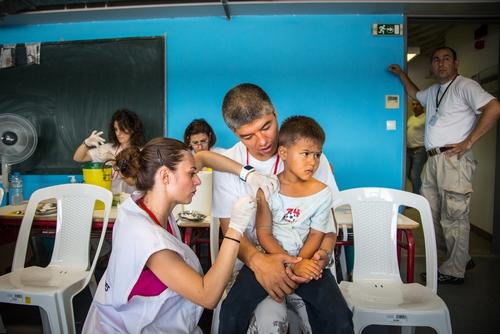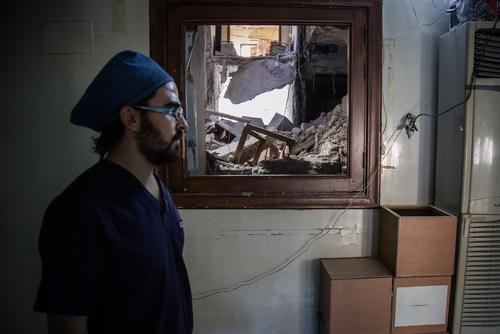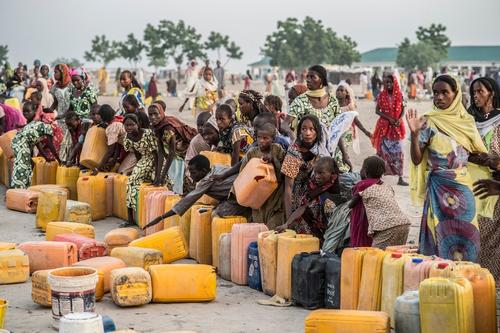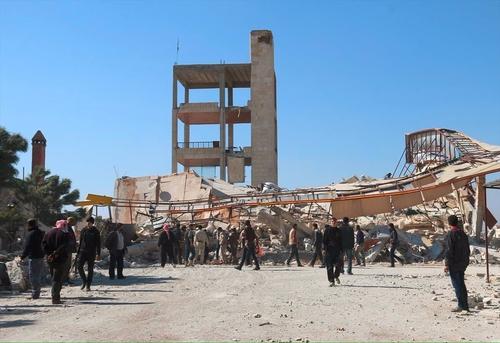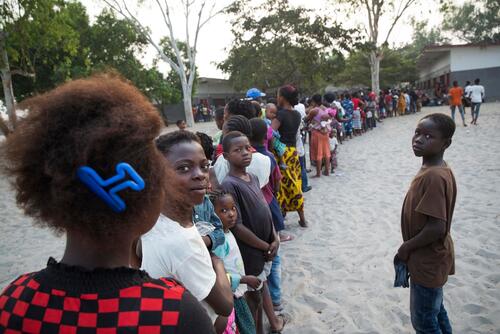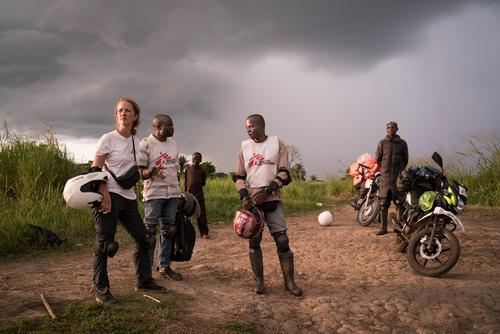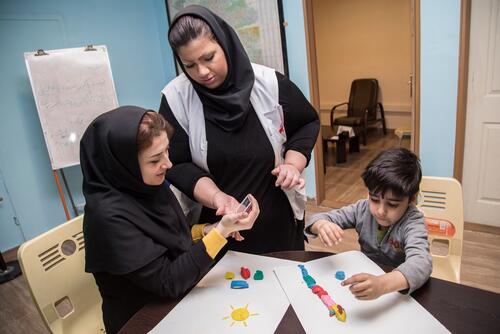In 2016, MSF took part in a number of massive vaccination campaigns.
A long queue has formed outside a community centre in Lusaka, Zambia. People of all ages wait patiently in the sun for their turn to enter. Inside, young mother Mathilda stands with her three-year-old daughter Edna on her hip. They are each given a small glass vial of liquid and, throwing their heads back, they swallow the contents.
It’s April and Lusaka, Zambia’s capital city, is in the grip of a major cholera outbreak. The overcrowding and poor sanitation in the informal settlements where 1.2 million people live, together with the late arrival of the rainy season, have created the ideal conditions for a cholera outbreak. In response, MSF has collaborated with the Zambian Ministry of Health to launch the largest-ever oral cholera vaccination campaign. Nearly half a million people will, like Mathilda and Edna, receive one dose of the oral vaccine to help curtail the spread of the disease.
In many other countries in the world, MSF continues to run emergency vaccination campaigns in response to outbreaks of disease, and provide catch-up immunisations for vulnerable children.
Between May and September 2016, MSF vaccinated more than a million people in the Democratic Republic of Congo (DRC) as part of the Ministry of Health’s response to an outbreak of yellow fever that began in neighbouring Angola. The logistical and organisational requirements were huge, involving 100 teams composed of 160 staff from 20 countries, with a fleet of 65 vehicles, carrying 4,000 ice packs and coolers every day.
However, the outbreak – in which there were nearly 1,000 confirmed cases and a further 7,300 suspected cases across the two countries – exposed the fragility of the vaccine supply. With only six million doses of the yellow fever vaccine available globally, and the vaccine’s manufacturers able to produce just three million doses a month, the need to rapidly vaccinate over 10 million people in DRC alone left the World Health Organization scrambling for a solution. The decision was made to administer a fraction of the normal dose, giving enough protection to last until the end of the outbreak.
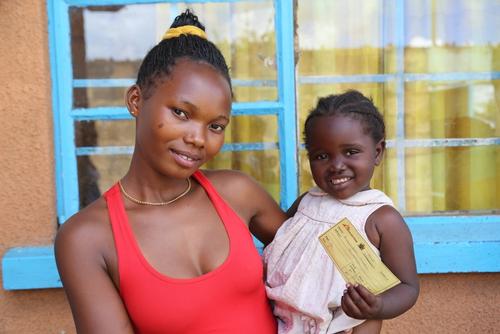
In Central African Republic (CAR), MSF participated in a catch-up vaccination campaign of an unprecedented scale, targeting nearly a quarter of a million children over the course of the year. Fewer than one in 10 children are fully vaccinated in CAR. In one burst of activity, MSF staff, working in partnership with the Ministry of Health, vaccinated 14,000 children in just five days.
Dozens of cars and motorbikes were used by nearly 370 staff in 16 mobile teams to access vaccination sites across CAR. Children under the age of five were vaccinated against polio, tetanus, diphtheria, whooping cough, hepatitis B, measles, and strains of pneumonia and meningitis.
During 2016, MSF carried out its first emergency vaccination campaigns in Europe. Starting in May, teams vaccinated 3,000 children against common childhood diseases in Idomeni in Greece, near the border with the Former Yugoslav Republic of Macedonia. Throughout the summer, catch-up vaccination campaigns took place in camps in Attica, central Greece, on the islands of Samos and Lesbos, and in Elliniko, near Athens; a total of 7,000 children were vaccinated across Greece. Children aged between six weeks and 15 years were vaccinated against a number of diseases, including pneumonia – one of the biggest killers of children under five, with a million dying of it each year.
However, the price for this intervention in Greece was high. The pneumococcal conjugate vaccine (PCV) used in the campaigns was bought at the eye-wateringly expensive price of €60 (US$68) per dose. That is around 20 times the lowest global price of just over US$3 per dose – or nearly US$10 per child for the three doses needed for full protection. Meanwhile, vaccination campaigns using PCV in CAR relied on donated vaccines, an unsustainable practice.
The need for affordable lifesaving vaccines like PCV in MSF’s operations prompted MSF’s Access Campaign to launch its A Fair Shot campaign in 2015. This followed the ultimate failure of seven years of negotiations for affordable and sustainable access to PCV with Pfizer and GlaxoSmithKline (GSK), the two pharmaceutical corporations that make the vaccine.
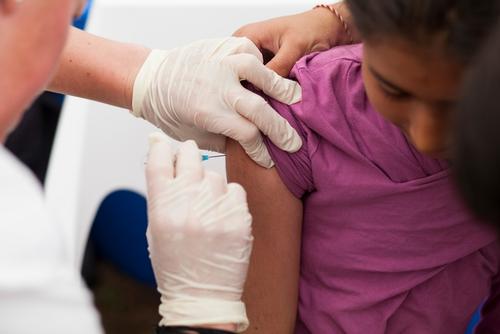
Through the campaign, MSF urged Pfizer and GSK to lower the price of PCV to US$5 per child, for three doses, for all developing countries, including middle-income countries like Jordan – which are not eligible for the lowest global price – and for humanitarian organisations like MSF to protect vulnerable children. A global petition, pushing for a price of US$5 per child, was signed by nearly half a million MSF supporters in 170 countries and handed to each company.
There was a breakthrough in September, when GSK announced that it would offer humanitarian organisations like MSF access to PCV at the lowest global price for use in humanitarian emergencies. Pfizer, under continued pressure, finally caved in and announced in November that it would follow suit. However, both companies continue to hold out on extending the offer to middle-income countries. Currently, more than a third of the world’s countries have not been able to introduce PCV due to its high price, and children in those countries remain unprotected against pneumonia.
During 2016, MSF vaccinated more than 2.2 million people in response to outbreaks and nearly half a million more for routine immunisation. MSF will continue to campaign and pursue strategies that will enable its staff to vaccinate more people in the constrained settings in which they work, as the best way to prevent many diseases.



